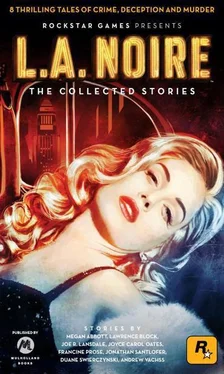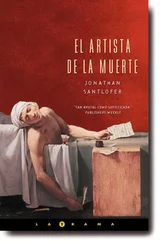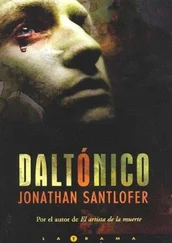Landru’s students turned around and gave me the hairy eyeball. I had the feeling they were expecting me. And then an even crazier feeling that they were actors paid to play actors learning how to act. It wasn’t a useful thought. It wasn’t going to help me get the most from the class.
I nodded and smiled and shook it off and focused on Professor Landru.
Hello, Central Casting? Can you get me an arty French guy? Slight, quick, pencil moustache, little goatee, paisley ascot. Even a beret. But even with all those clothes on, he was what they call a cool customer. The only one not sweating.
His thick French accent felt put-on. One of those guys, you wake him up in the middle of the night, and he speaks the king’s Brooklyn English.
In fact as he started talking—and talking and talking—the accent migrated from the Left Bank of the Seine to the Bronx River Parkway. He sounded like a friend of my dad’s. And why was I taking lessons from a guy who couldn’t even keep up an accent? Then I remembered. He wasn’t an accent coach. He taught people how to kill.
“Take zat chair,” said Professor Landru. I sat between a red-haired girl in a yellow dress and a young guy in jeans and a denim jacket. Neither of them looked at me. It was like they were afraid to.
The professor introduced himself. Then he basically ran through every film we’d ever heard of and a lot we hadn’t, every famous and obscure picture made in the last thirty years. That is, every picture that featured a homicide.
This strangling, that poisoning, that shooting. He boasted about his work. The machine guns that gangsters would never have picked up without his coaching! That woman pushed out the window. “Defenestration,” he said. “The defenestration of Miss…” He mentioned an actress whose name made everyone gasp. That was early in her career, but there were many actors—he listed a dozen major stars—who’d required his coaching.
“What would we make films about if there were no murders?” He gave a little giggle. “But you wouldn’t be here if you didn’t understand that most human beings don’t want to murder other human beings. It’s not as natural as we might think. It… goes against the grain.”
I sure didn’t think it was natural. That’s why I was there. The other students were all nodding. And scribbling in their notebooks.
“It’s something that must be learned,” Frenchie said. For personal reasons he preferred not to discuss, this had become his specialty.
Today we would run through a series of exercises designed to tap into certain feelings. We will draw on our own experience and recall sense memories we’d forgotten or never knew we had…
It was always easier to demonstrate than describe. The professor asked for two volunteers. Two girls waved their hands in his faces. Both had ponytails and smart little secretary dresses.
“You’re not sisters, are you?” he said.
“No sir,” they said. “We never met before.”
“Good. I want you to play sisters. Fiendishly jealous since childhood. And now you are both in love with the same man. One of you”—he pointed at one, at random—“is going to strangle the other.”
You could see why these dames needed lessons. The victim bugged her eyes and shrieked. The killer sister puffed herself up like a robin whose worm the blue jay has stolen.
Landru stopped them and said to the killer girl, “You do have a sister, don’t you?”
“Sure. How do you know?”
“I have my little ways. Now I want you to remember back to when you were a little girl, and your sister first came into the house. Back to when you first realized your parents loved her more than you. Back to when you found out they’d given her your crib, your stroller, your toys—”
“How did you know about that?” She looked as if she’d caught the professor reading her diary.
“Oh please,” he said. “Acting requires being something of a mind reader, don’t you think?”
I guess the girl must have thought so. The other “sister” must have, too. I saw a funny look in her eyes. Like she was actually frightened.
“Concentrate,” said Professor Landru. “Remember. Put yourself back in that girl’s shoes. That little girl who was you.” He paused. “Now play the scene again.”
This time the killer sister flew across the room like a cat and dug her claws into the other sister’s neck. It went on for quite a while before we realized what was happening. Then two guys got up and dragged one girl off the other, who was yelling with real terror.
When things settled down, when the actresses stopped hyperventilating, and our hearts stopped slamming around, Professor Landru said, “Of course an important part of the training is learning to keep things under control. Oh, and by the way… The scene you’re playing doesn’t have to correspond directly to a situation in life. You needn’t have wanted to kill your mother to play a son who murders mom for the inheritance. All that matters is the emotion. Shall we try another scene?”
This time it was harder getting volunteers. We’d seen what his method could do, and no one was so eager to stand up and kill or be killed. Almost kill or be killed. Still, it was school. Harry Wattles had paid my tuition. The others had probably paid their own way, and they were damned if a little squeamishness about murder was going to keep them from getting their money’s worth.
He called up two women and a man. He told them the man was going to poison his sisters because they wouldn’t let him marry the only woman he’d ever loved. They’d driven him into this corner from which he could only fight his way out. Fight to the death.
The actor who stepped up was the guy in jeans who’d been sitting next to me.
“Take a good look at this fellow,” said the professor. “You’re looking at a future star. The face of an angel grafted onto the soul of a street criminal.”
The rest of us checked him out. He wasn’t any better looking than half the guys in Hollywood. By now a lot of us were wishing he was the one getting murdered.
Professor Landru sat them down at a table, the man facing the two women. The girls had their backs to us.
The professor said, “Young man, was there ever a time in your life when you felt totally cornered? Completely trapped? With no hope of escape?”
The guy gave him a long look.
“Jesus Christ have I,” he said.
“This is then,” said Professor Landru. “Those women are trapping you. And there’s only one way they’ll let you go. This is their tea. This is the poison. Did I mention you’re a doctor? No one will ever find out, it’s the perfect crime. You just have to do it.”
I don’t know what I picked up on first. Some new tension in the women’s shoulders, the look on the guy’s face. That innocent kid in denim wanting them to die so he could get out of that corner. It was so real we couldn’t look. Everyone stared at the floor.
Landru said, “We don’t need to see the girls turn blue to know that our experiment has worked… Before we go any further, there’s another lesson, another part of the training I call ‘the wait.’ It’s not always in the script. As you know there are plenty of films in which the killer only gets caught in the last scene. But eventually he does get caught. Your childish film board insists.
“So there comes a moment after you have committed the crime, the moment I call ‘the wait.’ Either you will come to your senses and sink down into the nearest chair and wait for the cops to come. Or you will run till they catch you—and then wait to see what happens next. In both cases, the wait is the same. Sometimes sooner, sometimes later. And it takes practice. Because unless you can imagine the crime, as we’ve been doing today, you cannot imagine the guilt, or the expectation of punishment, the sorrow or the relief.
Читать дальше












